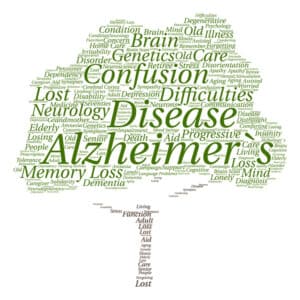Do you have an aging parent who has been diagnosed with Alzheimer’s? Are you the primary caregiver for this individual? Or are you one of several family members acting as caregivers? If you are, then you will quickly realize the challenge and struggle to assist somebody with Alzheimer’s poses. A professional dementia care aide who has worked with other seniors diagnosed with Alzheimer’s and other forms of dementia is the best thing to do if you want to help your loved one the most. Yes, you want to be there for him or her. And you still can.

Too often, though, family and friends are the ones who step up to offer assistance. They don’t have any prior experience doing this. Imagine stepping into your place of employment, having no prior experience, and expecting to do the job you’re currently doing. Would that be realistic?
If not, then why do you assume it’s easy to simply step in and provide care and support to somebody with Alzheimer’s as opposed to relying on a professional?
As you move forward, though, and continue to provide support for your aging parent, spouse, grandparent, or other loved one who is now dealing with Alzheimer’s, don’t overlook the value and importance of dementia care.
In the meantime, let’s look at three things you could do better when you are supporting a parent with Alzheimer’s.
1. Learn your limits.
We all have limits. Whether it is emotional, physical, mental, or even time limits, we have them. Unfortunately, most of us tend to ignore those limits, especially during a time of crisis. That might work out well short term, but it’s going to be a liability over the long haul.
Alzheimer’s is not a sprint. It is a marathon. It is an exhausting, grueling marathon. If you don’t learn your limits, it’s going to affect your health — both mental and physical — and possibly your relationship with that aging senior.
2. Understand the challenges that lie ahead.
Alzheimer’s is a progressive disease. It’s not going to get better. It’s going to get tougher. If you think things are going to be as they are today in a year or two, it might be in rare instances, but most of the time it’s going to get tougher.
If you don’t have any idea of the challenges that will come, you are not prepared for this. Make sure you realize how things will change and how much more difficult it’s going to be for you to support this loved one with Alzheimer’s.
3. Be willing to ask for help.
You don’t have to be too proud to ask for help. Asking for help isn’t a sign of weakness. It’s a sign of strength, especially when you’re helping somebody with Alzheimer’s.
You might ask a family member or friend for help. But, when you do need help and you recognize that you are pushing beyond your limits, turn to dementia care. Our dementia care agency would be the right option for those supporting loved ones with Alzheimer’s.
If you or an aging loved one are considering Dementia Care Services in Schnecksville PA please contact the caring staff at Extended Family Care Allentown today. Call 610-432-6766
Extended Family Care Allentown is a Trusted Home Care Agency in Allentown, Pennsylvania including Bethlehem, Easton, Emmaus, Macungie, Whitehall, Schnecksville, Catasauqua, Northampton, and Nazareth.
- Honoring Our Team: Birthdays, Anniversaries, and New Additions! - May 28, 2025
- When It’s Time for Your Loved One to Come Home From the Hospital - May 23, 2025
- Celebrating Our Team – May Highlights - May 21, 2025

